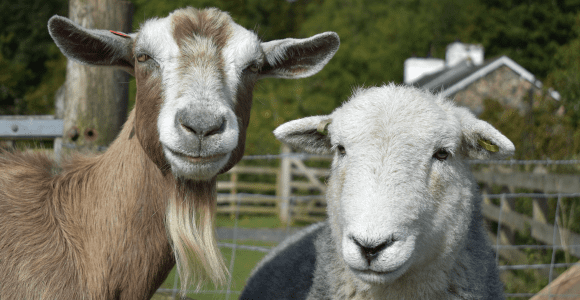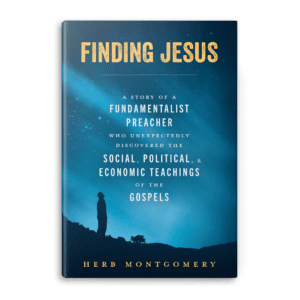
Lastly, I want to briefly address this language of eternal life or eternal punishment. You can read a more in-depth treatment in the appendix of my new book Finding Jesus: A Story of A Fundamentalist Preacher Who Unexpectedly Discovered the Economic, Social, and Political Teachings of the Gospels.
Welcome Readers! Please subscribe to Social Jesus Here.
(Read this series from the beginning at Part 1 and Part 2.)
First, the idea of an apocalyptic eternal punishment was taught by the Pharisees in Jesus’ society:
“They [the Pharisees] say that all souls are imperishable, but that the souls of good men only pass into other bodies while the souls of evil men are subject to eternal punishment*. (Josephus, The Wars of the Jews, Vol. II, Chapter 8, Paragraph 14)
It’s important to understand the Greek words used to describe this “eternal punishment” as taught by the Pharisees. Aidios (eternal) was “pertaining to an unlimited duration of time” (Louw and Nida’s Greek–English Lexicon of the New Testament Based on Semantic Domains). Timoria (punishment) meant “to punish, with the implication of causing people to suffer what they deserve” (Louw and Nida’s Greek–English Lexicon of the New Testament Based on Semantic Domains). And penal refers to “the satisfaction of him who inflicts” (Thayer’s Greek-English Lexicon of the New Testament).
Why is this important? Because there were other words that one could choose to use if you were talking about eternal punishment as we understand that today. Philo, for instance, mentions eternal punishment but uses a different term than aidios timoria:
“It is better not to promise than not to give prompt assistance, for no blame follows in the former case, but in the latter there is dissatisfaction from the weaker class, and a deep hatred and eternal chastisement [aionion kolasis] from such as are more powerful.” (Philo, Fragments)
Philo uses the words aionion kolasis. Aionion is “indeterminate as to duration” (Mounce’s Concise Greek English Dictionary of the New Testament). In Thayer’s Greek-English Lexicon of the New Testament, the word “gives prominence to the immeasurableness of eternity.”
It’s not that aionion lasts forever, but that linear time is not a constriction. It doesn’t matter if it takes forever for whatever this adjective is describing to accomplish its purpose.
And as it relates to the definition of kolasis, Thayer’s explains, “kolasis is disciplinary and has reference to him who suffers, [while] timoria is penal and has reference to the satisfaction of him who inflicts.” (Thayer’s Greek-English Lexicon of the New Testament)
Plato uses kolasis in terms of discipline:
“If you will think, Socrates, of the nature of punishment, you will see at once that in the opinion of mankind virtue may be acquired; no one punishes [kolasis] the evil-doer under the notion, or for the reason, that he has done wrong—only the unreasonable fury of a beast acts in that manner. But he who desires to inflict rational punishment [kolasis] does not retaliate for a past wrong which cannot be undone; he has regard to the future, and is desirous that the man who is punished [kolasis], and he who sees him punished, may be deterred from doing wrong again. He punishes for the sake of prevention, thereby clearly implying that virtue is capable of being taught.” (Plato, “Protagoras”)
Whereas timora was punishment that satisfied a need in the punisher to see someone suffer for what they had done, kolasis was discipline or punishment to address the need in the one being punished so that they might learn to make different choices. It was redemptive punishment: restorative justice, not retributive justice.
The words the author of Matthew’s gospel choose to use for the goats in our story this week is not aidious timoria (retribution) but aionion kolasis (restoration). And this makes sense. Goats are of such a nature that they will only learn the hard way. Some nations will have to learn the hard way, too.
But whether a nation is a stubborn goat or a sheep that can be gently led, both goats and sheep only survive when they learn the lessons of distributive justice. I love the words of Rev. Dr. Jacqui Lewis speaking of social salvation within the context of our collective lives together:
“I know this to be true: The world doesn’t get great unless we all get better. If there is such a thing as salvation, then we are not saved until everyone is saved; our dignity and liberation are bound together.” (in Fierce Love, p. 14)
And that seems to be what our reading this week is hinting at. A nation’s greatness is not measured by its wealth but by its wealth disparity; not by its GDP but how much poverty it creates to produce that GDP; and not by how powerful its elite members are but by how it chooses to collectively take care of those the system deems to be “the least of these.”
 Herb’s new book, Finding Jesus: A story of a fundamentalist preacher who unexpectedly discovered the social, political, and economic teachings of the Gospels, is now available at Renewed Heart Ministries.
Herb’s new book, Finding Jesus: A story of a fundamentalist preacher who unexpectedly discovered the social, political, and economic teachings of the Gospels, is now available at Renewed Heart Ministries.














